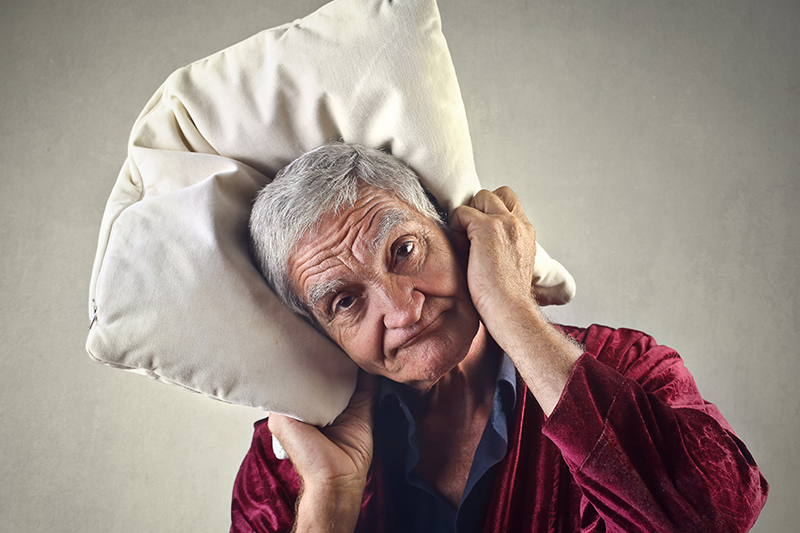

Then, the patient needs to be sufficiently relaxed to be able to transition into sleep. It should be quiet, and most people sleep better if their sleep environment is slightly cool as well.
#Severe insomnia and confusion in elderly free
This may include removing the stressors of the day from the area (ie, TVs, computers) and ensuring that the environment is generally free of light, in particular blue light, which has been to promote wakefulness. Patients also should maintain some sort of regular exercise during the day, and the sleep environment should be appropriate for sleep. Caffeine and alcohol should be avoided close to bedtime to help the patient transition to sleep because caffeine can be stimulating and, although alcohol may have an initial sedating effect, it also can have a rebound effect. Because older adults tend to have a natural shift in their bedtime to go to sleep earlier, their bedtime should be adjusted to that new natural sleep clock. 10 One of these habits is to develop a regular routine, which includes determining the best bedtime for the patient. For example, a patient with early AD will commonly have a sleep disruption.ĪJMC ®: How do you treat insomnia in older adult patients?Īuerbach: Clinicians should start with ensuring the patient has good sleep hygiene, which is made up of a number of good habits that will allow the patient to develop a regular routine of sleep. Sleep disruptions in the elderly will commonly lead to cognitive complaints. This is because whatever is causing their memory complaint is also causing their sleep problem or because their sleep problems are contributing directly to the memory complaint. Of the older patients I see in my practice who present with memory complaints, a large percentage have sleep problems. In the population of adults 65 years or more, more than a third have reported sleep problems, 9 and half of those probably have very significant sleep problems that impact their lifestyle. 8ĪJMC ®: What is the prevalence of insomnia in older adults?Īuerbach: It is quite high.

The patient has to have both components (for a true diagnosis of insomnia). 7 The prevalence of disordered sleep increases with age, 1 and this can lead to insomnia, the 2 major components of which are: 1) the patient must present with some difficulty either initiating sleep, or staying asleep, waking up too early, or having more fragmented sleep and 2) this disrupted sleep pattern must have a negative impact on the patient’s daytime functioning. If their caregivers don’t sleep well during the night, it jeopardizes the whole caregiving system.įurthermore, if elderly patients are getting up in the middle of the night and wandering, it puts them at risk of other things, such as falls. They wake up in the middle of the night and they are confused and agitated, which in turn also makes it difficult for their caregiver to sleep through the night. 3-6 For example, if an elderly person with dementia of any kind is not sleeping well through the night, it becomes a major problem. have a greater risk of developing disrupted sleep, and in those cases the consequences of disrupted sleep are more complicated than in patients without neurodegenerative disease. 2,3 Also, a number of neurological conditions are associated with sleep problems, such as many of the neurodegenerative disorders, like Alzheimer disease (AD) and Parkinson disease. In addition, older adults have more medical conditions that disrupt sleep, such as chronic pain, and they may have been prescribed medications that can disrupt sleep. Once that sleep disruption occurs, particularly if it is enough to cause some cognitive impairment, the patient is more vulnerable to the adverse effects of lost sleep. 1 if an older adult wakes up in the middle of the night, it is harder to get back to sleep. All the aspects that would cause insomnia in a younger patient are amplified in older patients. Sleep becomes more fragile and sensitivity to aspects that impact sleep increases. It becomes geared toward going to bed earlier and waking up earlier.

He is the director, Sleep Disorders Center director, Sleep Medicine Fellowship Training Program and associate professor of neurology, psychiatry, and behavioral neurosciences at the Boston University School of Medicine in Boston, Massachusetts.Īuerbach: As people age, the human body undergoes changes, and the body’s sleep clock advances. AJMC ®: How does sleep change as people age?Įditors from The American Journal of Managed Care ® ( AJMC ®) spoke with Sanford Auerbach, MD, to discuss considerations for treating older adults with insomnia.


 0 kommentar(er)
0 kommentar(er)
